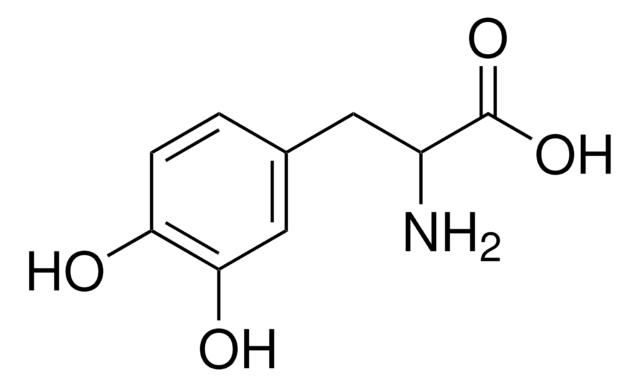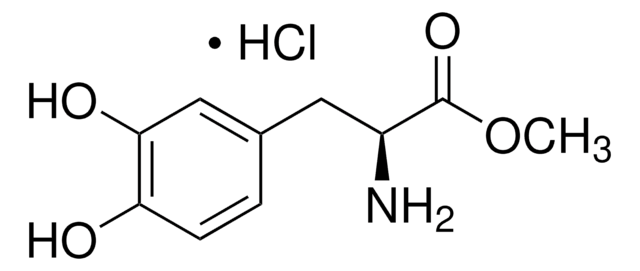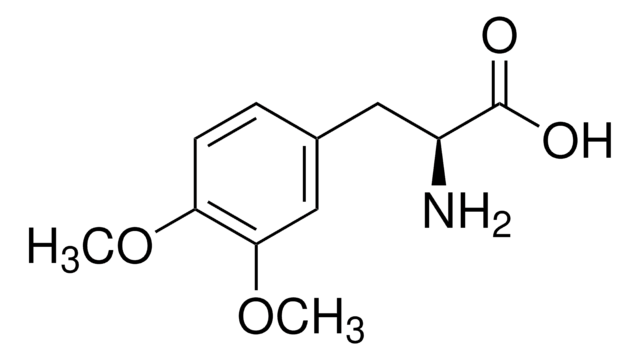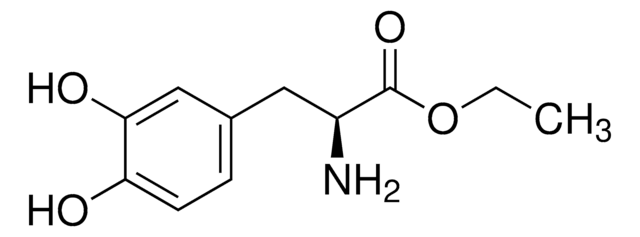D9378
3,4-Dihydroxy-D-phenylalanine
≥95% (TLC), powder, DOPA enantiomer
Synonym(s):
3-(3,4-Dihydroxyphenyl)-D-alanine, D-3-Hydroxytyrosine, D-DOPA
Select a Size
Select a Size
About This Item
Recommended Products
Product Name
3,4-Dihydroxy-D-phenylalanine, powder, ≥95%
Quality Level
assay
≥95%
form
powder
mp
276-278 °C (lit.)
solubility
1 M HCl: soluble
ethanol: insoluble
storage temp.
−20°C
SMILES string
N[C@H](Cc1ccc(O)c(O)c1)C(O)=O
InChI
1S/C9H11NO4/c10-6(9(13)14)3-5-1-2-7(11)8(12)4-5/h1-2,4,6,11-12H,3,10H2,(H,13,14)/t6-/m1/s1
InChI key
WTDRDQBEARUVNC-ZCFIWIBFSA-N
Looking for similar products? Visit Product Comparison Guide
Application
Biochem/physiol Actions
Storage Class
11 - Combustible Solids
wgk_germany
WGK 3
flash_point_f
Not applicable
flash_point_c
Not applicable
ppe
Eyeshields, Gloves, type N95 (US)
Choose from one of the most recent versions:
Already Own This Product?
Find documentation for the products that you have recently purchased in the Document Library.
Customers Also Viewed
Chromatograms
application for HPLCapplication for HPLCOur team of scientists has experience in all areas of research including Life Science, Material Science, Chemical Synthesis, Chromatography, Analytical and many others.
Contact Technical Service











